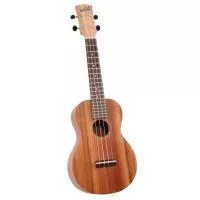Hello to all. To those who will be kind enough to answer me, I take the liberty of writing this little article after some members' analises. I would like to thank Lisacallas for his discussion about the summary of the titles of the receipts. Indeed, this questioned me, because a lot of people rely on the titles for the choice of a score. Here we have various levels from the great beginner to the virtuoso. Among these categories, we wonder about the depositions according to the titles and especially the composers. e.g.: Maurice Larcange; Tony Murena (it will be unplayable). While it is nothing of it. The creator of our site (Slade with our Cindou) had the brilliant idea to put stars in this sense. I think it would be good to use them to allow some members to make their choices without surprises. What do the depositors think of this implementation ????
5
Replies
Vernonait
11/01/2016
Hello Adler Trio
I hasten to answer you because I am concerned by your suggestion; indeed, being an average beginner (strength 2 or 2 & a half) it is true that if we use the stars it would allow not to open the scores one by one to know if they correspond to the desired level .....but we can't impose to each depositor to mention it systematically; moreover, I think that some musics are maybe not obvious to evaluate the degree, the strength or the star.....(except if we are a music pro!!!)Do for the best ........ it's already great to find partoches thanks to P.A.Thank you and friendshipVernonait
I hasten to answer you because I am concerned by your suggestion; indeed, being an average beginner (strength 2 or 2 & a half) it is true that if we use the stars it would allow not to open the scores one by one to know if they correspond to the desired level .....but we can't impose to each depositor to mention it systematically; moreover, I think that some musics are maybe not obvious to evaluate the degree, the strength or the star.....(except if we are a music pro!!!)Do for the best ........ it's already great to find partoches thanks to P.A.Thank you and friendshipVernonait
LisaCallas
11/01/2016
Hello adler trio,
Thank you for supporting me in the proposal to avoid collections without an index of the titles included in it.
Yes, it's nice the idea of stars but, you see, I sing and I play, as an amateur, the piano and the ukulele. I'd be in a bad position to evaluate, in terms of number of stars, what I could put down.
But for those who can, yes it would be nice for you accordionists I'm sure.
Good music,
LisaCallas
Thank you for supporting me in the proposal to avoid collections without an index of the titles included in it.
Yes, it's nice the idea of stars but, you see, I sing and I play, as an amateur, the piano and the ukulele. I'd be in a bad position to evaluate, in terms of number of stars, what I could put down.
But for those who can, yes it would be nice for you accordionists I'm sure.
Good music,
LisaCallas
Unknown
11/01/2016
Thank you from the bottom of my heart for participating. The evaluation is, admittedly not easy to determine. I rely on different criteria in this regard. These are (the key, the chords (that have little simplified that said) and the fingering according to the arrangement of notes (see arpeggios), and of course the rhythm. To have passed by its degrees gives an idea of the analysis of those. (see scores of the site by degrees) gives you the evolution of the difficulty. For you my great friend Vernonait it is very easy to locate you (the chords according to the kind) let us say of the chords passes everywhere, and of surcroit in an easy spirit at the level of interpretation. Lisa; I am very happy to know you practicing, of this small guitar called ukulele, of which you should speak to us; why this one rather than a classical guitar??? it makes Latino; your pseudo resulting from the indetronable Maria Callas!!! whereas you sings is rather of a classical and complicated repertoire because opera obliges. I'd be happy to get to know you better. Adler
LisaCallas
11/01/2016
Hi Adler, I don't really like to talk about myself so I'll be brief but I hope to enlighten you. First of all, I only sing pop and jazzy music, the nickname being humorous, to make a wink to this lady who has the voice that I don't have.
And the ukulele, it's a choice that came by curiosity to understand the diagrams and tablatures that I saw guitarist friends using without me understanding anything. This instrument, with only four strings, seemed easier for my arthritic fingers. Also, I like the original sound of the ukulele for some songs. So, a mix of curiosity and laziness (compared to the guitar) made me choose this instrument.
But when I go, with guitarists, to sing voluntarily in senior residences, we have an accordionist who also comes.
Good music,
LisaCallas, without the Callas voice ;-)
And the ukulele, it's a choice that came by curiosity to understand the diagrams and tablatures that I saw guitarist friends using without me understanding anything. This instrument, with only four strings, seemed easier for my arthritic fingers. Also, I like the original sound of the ukulele for some songs. So, a mix of curiosity and laziness (compared to the guitar) made me choose this instrument.
But when I go, with guitarists, to sing voluntarily in senior residences, we have an accordionist who also comes.
Good music,
LisaCallas, without the Callas voice ;-)
Unknown
12/01/2016
Well I wish you, musically, to please yourself. I put you the king of the tamouré ; and I will put you some sung ; promised !!!! because I am sensitive to the communication . 64 views and 2 answers ; only happiness !!!!
HELLO MUSICIAN FRIENDS
Tony Muréna has recorded a lot, especially in his last period when, like many others, he devoted himself to the interpretation of variety songs or fashionable tunes. It was necessary to forget everything that recalled the war and therefore also the music of that period; in short, the swing era was over. We have privileged here this golden age of swing musette: that is to say the years 1939-1947, plus some later titles where Muréna still has beautiful accents. If many of these songs have already been re-released on CD, they were most often scattered on various compilations, most of the time mixed with typical or commercial songs, without any indication of date or personnel, and in these times where one product drives out the other, most of these discs are not available anymore (1). Here is for the first time in 3 CDs, and in chronological order, almost all of Tony Muréna's best tracks, (with precise references and indication of personnel when identified), showing his immense talent. THE BEGINNINGS Born in Italy in 1916, Antonio Muréna did not know his father, who died on the field of honor (fallen on the Chemin des Dames). Like many Italians, he arrived in France with his mother, who remarried in 1923 to a fellow countryman, shortly after the First World War. They settled in Nogent-sur-Marne and then in Joinville. An uncle gave his first accordion to the young Tony, who showed a serious aptitude for music and studied with passion and persistence. The autodidact benefits from the advice of the great Médard Ferrero. At the age of twelve, he already performed at his first balls. Then, launched by his cousin Louis Ferrari (1910-1988), also an accordionist, he started in cabarets and guinguettes. He lost his mother and then his stepfather and found himself alone with his sister and three half-sisters. To make boil the pot he puts the double bites, puts himself in the bandoneon and quickly integrates the best orchestras of tango (Rafael Canaro, Eduardo Bianco...). We are in 1932, Muréna is only 16 years old ! His quintet is sufficiently famous to be part of the replacements of the holder of the Balajo. Having to go on tour, Muréna proposes to Jo Privat to replace him at the Balajo; the latter will remain there 50 years! Muréna plays at La Silhouette, La Boule noire, La Java, Le Pré Catelan, Ciro's... The guitarists Didi Duprat, Lucien Gallopin, one or the other of the Ferré, are then its accompanists. SWING MUSETTE It is in France that the first full-fledged jazz accordion develops. Roger Etlens is said to have been one of the first to play jazz on the accordion, followed by Louis Richardet and Charley Bazin. But these precursors did not record much and it is Viseur who will be the first great jazz accordionist, followed immediately by Muréna. In the absence of the American models, who left for the United States after the declaration of war, the pioneers of the French swing accordion developed a style mixing American jazz, French musette and gypsy swing. Viseur, Muréna, and then Jo Privat, renovated the musette genre in depth by eliminating the accordion's vibrating register, introducing more sophisticated harmonies, and embarking on the adventure of what is called im-provisation. According to Mrs. Muréna's testimony (2), whenever they had a moment, Gus (Viseur) and Tony (Muréna) would play together just for them. We have a glimpse of what this could give, with about ten titles recorded around 1948 by the two companions (Matelo Ferret would be on guitar and the double bass player is not identified). These recordings, not very well known, were released under the name of Accordion's Club (cf. here "?Home Trainer?", the magnificent version of "?Body and Soul?", the super acceleration of tempo on "?On The Sunny Side of The Street?" which swings to death, and "?After You've Gone?) They will also play with the whole team of the Hot Club de France, where Muréna joins in 1941, and meet in boeufs, after the concerts, and more regularly thereafter at the Mirliton, a dance hall that Muréna buys in 1949 on the side of the place Clichy, and where all the accordionists come, at least those who like the beautiful chords. Still according to Mrs Muréna, Django and Tony liked to play together... What a pity that no sound trace has reached us! "... We were in Les Sables d'Olonne when Tony learned that Django had died. Tony collapsed. That's the only time I saw my husband cry..." (3) MURÉNA, VEDETTE DES DISQUES ODÉON In 1939, shortly before the declaration of war, Tony met Emile Prud'homme (who was to become his brother-in-law), who had just recorded for the prestigious Odéon record label. He introduced Tony to the artistic director of the label, Edouard Dory, who was truly enthusiastic about his sparkling playing. On May 11, 1939, two swings are recorded, "?Madam's?" co-composed by Muréna with P. Fontaine and "?all is not lost?", a light swing by Louis Richardet. Jacques Petitsigne is on double bass, Matelo and Sarane on guitars, the latter illustrating himself by two remarkably constructed choruses and of course Tony on accordion, who combines in his phrasing beautiful and elegant. From the beginning of the 1940s, Muréna gave a new dimension to the accordion, surrounding himself with the best jazz musicians of the time: the drummers Georges Marion, Jacques Irsa, Roger Paraboschi, Pierre Fouad, the double bassists Jean Merlin, Jacques Petitsigne, René Larguier or Pascal Groffe, the clarinettists Pierre Gossez, Francis Camus, Lucas, Pierre Delhoumeau or Hubert Rostaing, the pianists Michel Ramos or Boris Sarbek, the guitarists Didi Duprat, René Duchaussoir, Lucien Gallopin... Between 1939 and 1943, Muréna drew largely from the gypsy source and more exactly from the gypsy source, by joining, just like Viseur (and a little later Privat) the talents of the Ferret brothers: Baro, Matelo and Sarane. In 1941, Tony becomes the star of the Odeon records and puts 22 titles in the can that year; the accordionist has perhaps never played so brilliantly. If his style is less fiery, less flamboyant than Viseur's, his touch is more sentimental and airy (cf. "?Le paradis perdu?", a magnificent ballad where Muréna combines finesse and feeling, this beautiful version of "?Yeux noirs?" with a long guitar chorus probably by Sarane, or these nervous swings like "?Le jitterbug?", "?Playmates?", "?Express 113?"or "China Town", an "American" jazz theme that the needs of the French production will rename "Chinatown", the opportunity for Muréna to launch some beautiful rockets), these last titles almost all interpreted with a septet with a very Goodmanian spirit: piano, drums and clarinet (excellent chorus of Pierre Delhoumeau). The accordionist treats the instrument like a real orchestra, taking advantage of all its resources: finesse of play, phrasing of a rare elegance, sense of exposition of a theme, constant inspiration. Stylist as there are few, he is never in the clichés: originality, spirit of creation and freshness are at the appointment. For Marcel Azzola, "?when Tony plays, we forget that it is the accordion, he is an authentic genius? Muréna is also the author of some fabulous compositions such as "Swing promenade", "Pacific" (a kind of blues that starts a bit like Django Reinhardt's "Rythm Futur", with an acceleration of the tempo illuminated by a sparkling guitar chorus, probably due to Baro Ferret, and rockets sent by Tony), "Ciro's", on which his suppleness and relaxed phrasing are marvellous, "Milk Bar", one of his most famous swings."one of his most accomplished swings or "?Pré catelan?", a swing recorded on May 30, 1942, a day when grace was undoubtedly upon him, since he also recorded "?Indifference? and "?Passion?", two masterpieces of great melodic beauty, co-composed with Joseph Colombo, charged with sensitivity and emotion, illuminated by Baro's chorus and which have not ceased to be played and replayed since. Muréna is thus, with Viseur and Privat, the singer of the waltz in minor which, imbued with a certain spleen, imposes itself as the masterpiece of jazz musette. MYSTERY AND GUMDROP !
Tony Muréna has recorded a lot, especially in his last period when, like many others, he devoted himself to the interpretation of variety songs or fashionable tunes. It was necessary to forget everything that recalled the war and therefore also the music of that period; in short, the swing era was over. We have privileged here this golden age of swing musette: that is to say the years 1939-1947, plus some later titles where Muréna still has beautiful accents. If many of these songs have already been re-released on CD, they were most often scattered on various compilations, most of the time mixed with typical or commercial songs, without any indication of date or personnel, and in these times where one product drives out the other, most of these discs are not available anymore (1). Here is for the first time in 3 CDs, and in chronological order, almost all of Tony Muréna's best tracks, (with precise references and indication of personnel when identified), showing his immense talent. THE BEGINNINGS Born in Italy in 1916, Antonio Muréna did not know his father, who died on the field of honor (fallen on the Chemin des Dames). Like many Italians, he arrived in France with his mother, who remarried in 1923 to a fellow countryman, shortly after the First World War. They settled in Nogent-sur-Marne and then in Joinville. An uncle gave his first accordion to the young Tony, who showed a serious aptitude for music and studied with passion and persistence. The autodidact benefits from the advice of the great Médard Ferrero. At the age of twelve, he already performed at his first balls. Then, launched by his cousin Louis Ferrari (1910-1988), also an accordionist, he started in cabarets and guinguettes. He lost his mother and then his stepfather and found himself alone with his sister and three half-sisters. To make boil the pot he puts the double bites, puts himself in the bandoneon and quickly integrates the best orchestras of tango (Rafael Canaro, Eduardo Bianco...). We are in 1932, Muréna is only 16 years old ! His quintet is sufficiently famous to be part of the replacements of the holder of the Balajo. Having to go on tour, Muréna proposes to Jo Privat to replace him at the Balajo; the latter will remain there 50 years! Muréna plays at La Silhouette, La Boule noire, La Java, Le Pré Catelan, Ciro's... The guitarists Didi Duprat, Lucien Gallopin, one or the other of the Ferré, are then its accompanists. SWING MUSETTE It is in France that the first full-fledged jazz accordion develops. Roger Etlens is said to have been one of the first to play jazz on the accordion, followed by Louis Richardet and Charley Bazin. But these precursors did not record much and it is Viseur who will be the first great jazz accordionist, followed immediately by Muréna. In the absence of the American models, who left for the United States after the declaration of war, the pioneers of the French swing accordion developed a style mixing American jazz, French musette and gypsy swing. Viseur, Muréna, and then Jo Privat, renovated the musette genre in depth by eliminating the accordion's vibrating register, introducing more sophisticated harmonies, and embarking on the adventure of what is called im-provisation. According to Mrs. Muréna's testimony (2), whenever they had a moment, Gus (Viseur) and Tony (Muréna) would play together just for them. We have a glimpse of what this could give, with about ten titles recorded around 1948 by the two companions (Matelo Ferret would be on guitar and the double bass player is not identified). These recordings, not very well known, were released under the name of Accordion's Club (cf. here "?Home Trainer?", the magnificent version of "?Body and Soul?", the super acceleration of tempo on "?On The Sunny Side of The Street?" which swings to death, and "?After You've Gone?) They will also play with the whole team of the Hot Club de France, where Muréna joins in 1941, and meet in boeufs, after the concerts, and more regularly thereafter at the Mirliton, a dance hall that Muréna buys in 1949 on the side of the place Clichy, and where all the accordionists come, at least those who like the beautiful chords. Still according to Mrs Muréna, Django and Tony liked to play together... What a pity that no sound trace has reached us! "... We were in Les Sables d'Olonne when Tony learned that Django had died. Tony collapsed. That's the only time I saw my husband cry..." (3) MURÉNA, VEDETTE DES DISQUES ODÉON In 1939, shortly before the declaration of war, Tony met Emile Prud'homme (who was to become his brother-in-law), who had just recorded for the prestigious Odéon record label. He introduced Tony to the artistic director of the label, Edouard Dory, who was truly enthusiastic about his sparkling playing. On May 11, 1939, two swings are recorded, "?Madam's?" co-composed by Muréna with P. Fontaine and "?all is not lost?", a light swing by Louis Richardet. Jacques Petitsigne is on double bass, Matelo and Sarane on guitars, the latter illustrating himself by two remarkably constructed choruses and of course Tony on accordion, who combines in his phrasing beautiful and elegant. From the beginning of the 1940s, Muréna gave a new dimension to the accordion, surrounding himself with the best jazz musicians of the time: the drummers Georges Marion, Jacques Irsa, Roger Paraboschi, Pierre Fouad, the double bassists Jean Merlin, Jacques Petitsigne, René Larguier or Pascal Groffe, the clarinettists Pierre Gossez, Francis Camus, Lucas, Pierre Delhoumeau or Hubert Rostaing, the pianists Michel Ramos or Boris Sarbek, the guitarists Didi Duprat, René Duchaussoir, Lucien Gallopin... Between 1939 and 1943, Muréna drew largely from the gypsy source and more exactly from the gypsy source, by joining, just like Viseur (and a little later Privat) the talents of the Ferret brothers: Baro, Matelo and Sarane. In 1941, Tony becomes the star of the Odeon records and puts 22 titles in the can that year; the accordionist has perhaps never played so brilliantly. If his style is less fiery, less flamboyant than Viseur's, his touch is more sentimental and airy (cf. "?Le paradis perdu?", a magnificent ballad where Muréna combines finesse and feeling, this beautiful version of "?Yeux noirs?" with a long guitar chorus probably by Sarane, or these nervous swings like "?Le jitterbug?", "?Playmates?", "?Express 113?"or "China Town", an "American" jazz theme that the needs of the French production will rename "Chinatown", the opportunity for Muréna to launch some beautiful rockets), these last titles almost all interpreted with a septet with a very Goodmanian spirit: piano, drums and clarinet (excellent chorus of Pierre Delhoumeau). The accordionist treats the instrument like a real orchestra, taking advantage of all its resources: finesse of play, phrasing of a rare elegance, sense of exposition of a theme, constant inspiration. Stylist as there are few, he is never in the clichés: originality, spirit of creation and freshness are at the appointment. For Marcel Azzola, "?when Tony plays, we forget that it is the accordion, he is an authentic genius? Muréna is also the author of some fabulous compositions such as "Swing promenade", "Pacific" (a kind of blues that starts a bit like Django Reinhardt's "Rythm Futur", with an acceleration of the tempo illuminated by a sparkling guitar chorus, probably due to Baro Ferret, and rockets sent by Tony), "Ciro's", on which his suppleness and relaxed phrasing are marvellous, "Milk Bar", one of his most famous swings."one of his most accomplished swings or "?Pré catelan?", a swing recorded on May 30, 1942, a day when grace was undoubtedly upon him, since he also recorded "?Indifference? and "?Passion?", two masterpieces of great melodic beauty, co-composed with Joseph Colombo, charged with sensitivity and emotion, illuminated by Baro's chorus and which have not ceased to be played and replayed since. Muréna is thus, with Viseur and Privat, the singer of the waltz in minor which, imbued with a certain spleen, imposes itself as the masterpiece of jazz musette. MYSTERY AND GUMDROP !
0
Reply






























